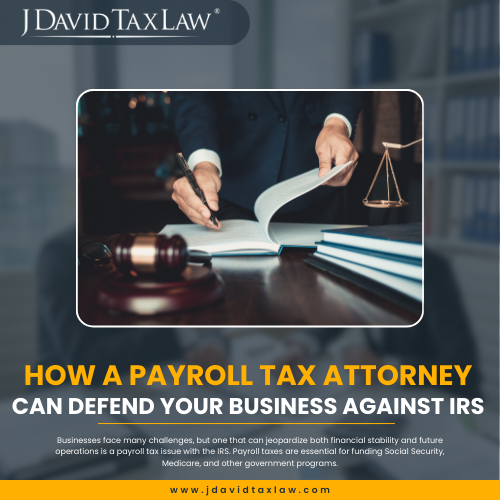Facing IRS penalties for the first time? The IRS First-Time Penalty Abatement is your golden opportunity to get a fresh start. This powerful IRS penalty abatement program allows qualifying taxpayers to reduce or completely eliminate penalties, thanks to a little-known tax dismissal program. It’s not just a one-off benefit—under certain conditions, the IRS abate penalties using federal administrative waivers, giving you room to breathe. Here’s everything you need to know about the First-Time Penalty Abatement and how it can help you keep your finances on track!
Abatement Meaning: How It Helps Reduce IRS Penalties
Abatement is a relief process that allows taxpayers to reduce or eliminate penalties imposed by the IRS, such as for late payments, filing delays, or non-deposit of taxes. This can be important in managing tax debt since penalties can significantly increase what you owe. One of the most popular options is the IRS First-Time Penalty Abatement, which offers penalty relief to eligible taxpayers with a clean compliance history. Additionally, the federal back tax abatement program can help reduce penalties in cases where the taxpayer can demonstrate reasonable cause for the failure.
First Time Penalty Abatement
First-Time Penalty Abatement is an IRS program that provides a one-time opportunity for taxpayers to have certain penalties reduced or eliminated. This relief is intended to help taxpayers who typically comply with tax laws but face unexpected issues in a particular year. Through IRS First-Time Penalty Abatement, taxpayers can reduce penalties such as failure-to-file or failure-to-pay, easing the financial burden of penalties that might otherwise significantly increase their tax debt. This program is part of the IRS’s broader efforts, including penalty abatement options, to assist taxpayers in staying compliant and managing their tax obligations without facing overwhelming financial consequences. By using this tax abatement option, individuals can mitigate the impact of penalties while still addressing their underlying tax debt.
Which Penalties Fall Under First-Time Penalty Abatement?
The First-Time Abatement program offers taxpayers the opportunity to reduce or eliminate specific penalties due to a one-time compliance issue. Not all penalties qualify for this relief, so it’s important to know which types are eligible. Generally these three penalties are considered eligible for abatement.
Failure-To-File Penalty
The Failure-to-File Penalty is imposed by the IRS when a taxpayer fails to submit their tax return by the due date, including any extensions. This penalty is often one of the most significant, as it accrues based on a percentage of the unpaid taxes owed. Typically, the penalty is calculated at 5% of the unpaid taxes for each month the return is late, up to a maximum of 25%. However, if the return is more than 60 days late, the minimum penalty is either $435 or 100% of the unpaid tax, whichever is less. Fortunately, the First-Time Penalty Abatement program may allow taxpayers to have this penalty reduced or eliminated if they meet the eligibility criteria. This can provide significant relief for those who have otherwise maintained good compliance with IRS rules in previous years.
Failure-To-Pay Penalty
The Failure-to-Pay Penalty is assessed when a taxpayer does not pay the taxes owed by the due date, even if they have filed their return on time. This penalty is typically less severe than the Failure-to-File Penalty, accruing at 0.5% of the unpaid taxes for each month, or part of a month, that the tax remains unpaid, up to a maximum of 25% of the unpaid amount. The IRS may reduce this rate if a payment plan has been arranged. In some cases, the First-Time Penalty Abatement program can be applied to waive or reduce the Failure-to-Pay Penalty, offering taxpayers relief if they have a strong history of compliance and meet certain conditions. This can help lessen the financial burden for those who need extra time to settle their tax debts.
Failure-To-Deposit Penalty
The Failure-to-Deposit Penalty is imposed on employers who do not deposit payroll taxes on time, in the correct amount, or through the appropriate method. These taxes include federal income tax withheld from employee wages, along with Social Security and Medicare taxes. The penalty varies depending on how late the deposit is made, starting at 2% of the unpaid amount for deposits that are 1-5 days late, up to 15% for deposits more than 10 days late or after receiving an IRS notice. This penalty can accumulate quickly, adding to the financial strain on businesses. However, for employers who have a good compliance history, the First-Time Penalty Abatement program may offer relief, allowing them to reduce or eliminate the Failure-to-Deposit Penalty, providing a pathway to manage their tax obligations more effectively.
Want to know how we manage penalties like Failure-to-File, Failure-to-Pay, and Failure-to-Deposit? Call us at (888) 342-9436 for a free consultation today!
Eligibility Requirements for IRS First-Time Penalty Abatement
To qualify for the IRS one time abatement of penalties, taxpayers must meet specific criteria that demonstrate a history of compliance and responsible tax behavior. Here are the key eligibility requirements:
Clean Compliance History
You must not have any prior penalties for the last three tax years before the tax year in which you’re requesting abatement. This means you have filed and paid your taxes on time and have not incurred any significant penalties during that period.
Filing of All Required Tax Returns
To be eligible, you must have filed all tax returns that are required. The IRS will not grant penalty abatement if you have any unfiled returns.
Paid or Arranged Payment of Any Tax Due
You must have paid, or made arrangements to pay, any tax due. This can be through full payment or through an IRS-approved payment plan. If you are currently under an installment agreement, you must be in good standing with that agreement.
No Prior Penalty Abatements
To qualify for First-Time Penalty Abatement, you must not have received this specific abatement from the IRS within the past three years. The IRS grants this relief only once in a three-year period, ensuring that taxpayers maintain a record of compliance before receiving it again.
Take the first step toward penalty relief- Fill out our contact form to find out if you qualify in a minute.
How Our Tax Attorneys Helps You Apply for IRS Penalty Abatement
At J. David Tax Law, we assist individuals and businesses across the U.S. in dealing with IRS and state tax debt requests. Backed by an A+ rating from the Better Business Bureau (BBB) and four decades of collective experience, we ensure your case is handled with professionalism and precision. Here’s how we work:
Eligibility Assessment
We begin by evaluating your situation to ensure you meet the IRS criteria for First-Time Penalty Abatement. This includes reviewing your compliance history for the past three years, confirming that all required tax returns have been filed, and ensuring any outstanding taxes have been paid or payment arrangements are in place.
Preparing the Application
While many clients opt to request First-Time Penalty Abatement over the phone, we often recommend submitting a formal written request to ensure accuracy and completeness. Our team can prepare and file IRS Form 843 on your behalf, outlining your case and ensuring all required details are presented clearly to the IRS.
Submitting Your Request
Once the application is prepared, we handle the submission process, ensuring that all supporting documentation is included. This may involve communicating directly with the IRS to advocate for your abatement, ensuring your case is properly reviewed.
Follow-Up and Monitoring
After submission, we actively monitor the status of your abatement request and follow up with the IRS as needed. We provide ongoing updates and handle any additional inquiries or documentation requests to expedite the process.
Want to Eliminate IRS Penalties? Contact Us Today and Learn How First-Time Penalty Abatement Works for You!
Your Tax Relief Questions, Answered















